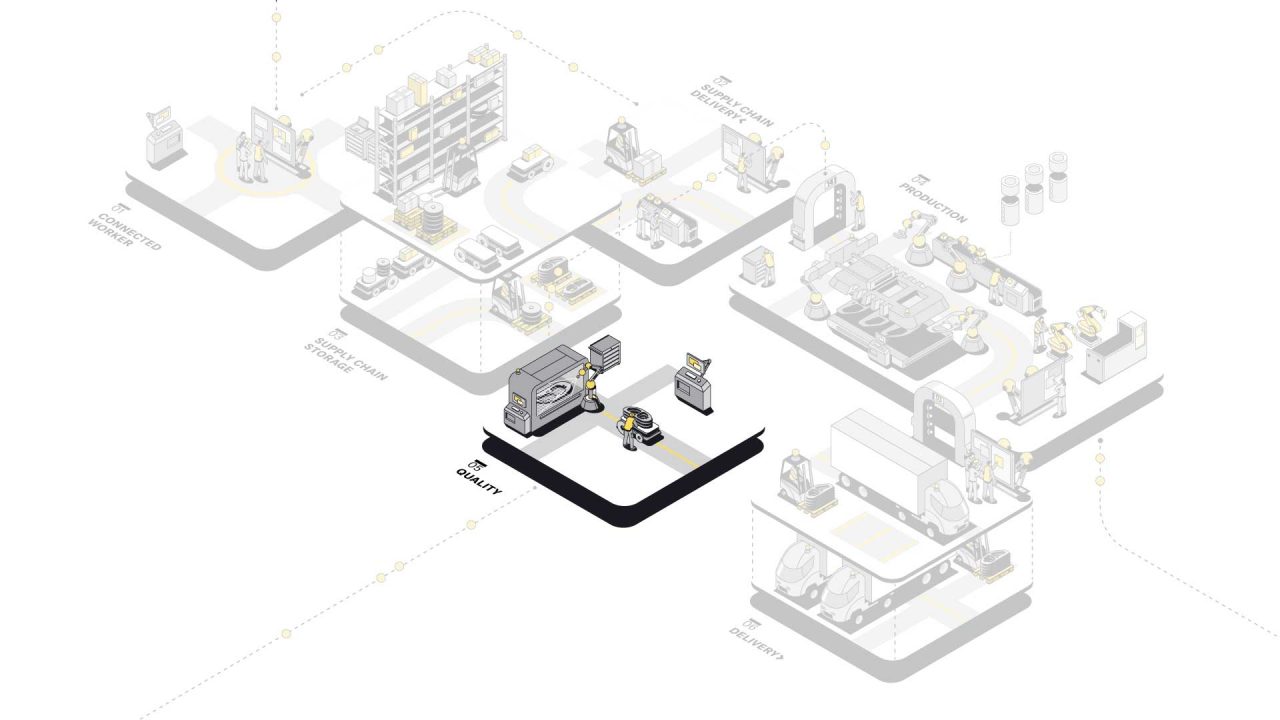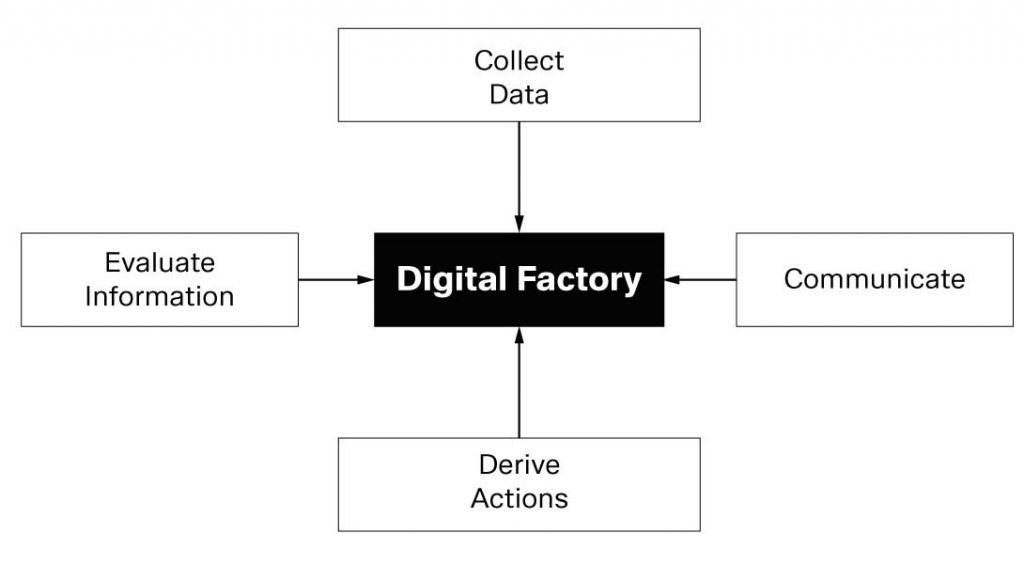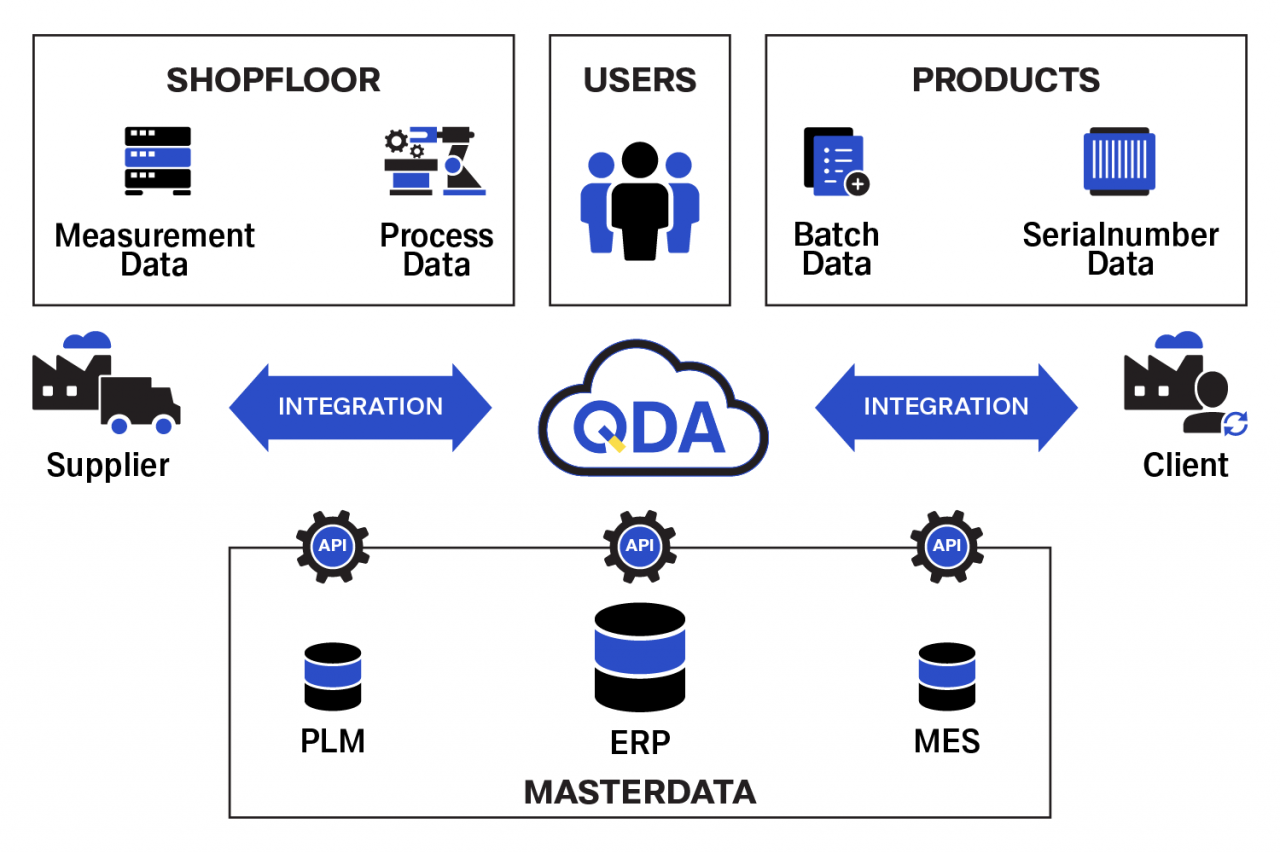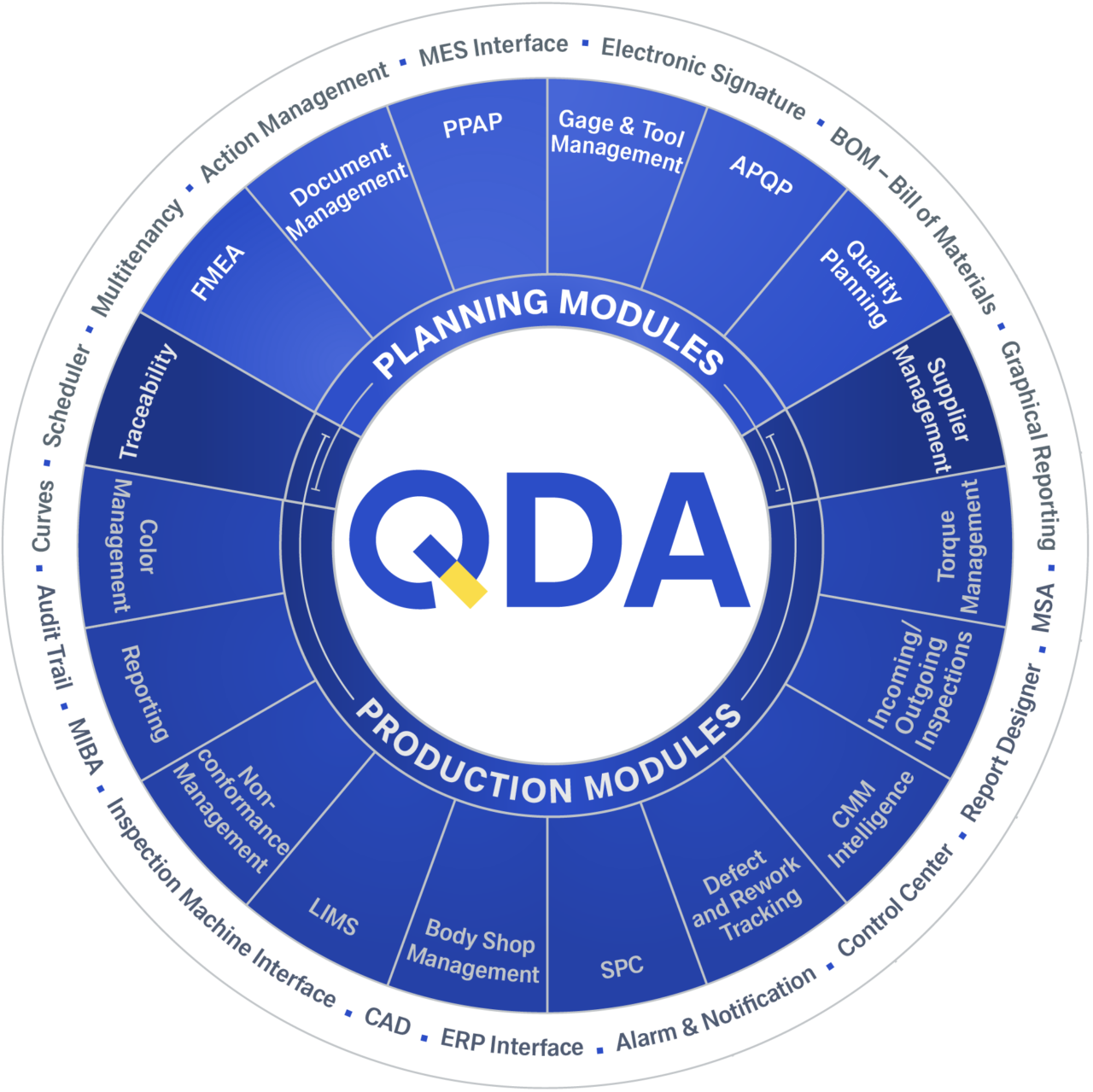Digital factory in quality management

The speed of change in the business world is increasing rapidly. Exogenous events like the pandemic, political tensions but also changing customer needs like batch size 1 (mass customization) requires a high amount of flexibility in companies and especially in the production process. One way to achieve resilience is to increase flexibility by expanding digitally and thus easily influencing and modifying processes. Learn more on this page about the topic “Digital Factory” and the digitalization of quality management and how we can support you on your journey to the Digital Factory.
Definition “Digital Factory”
For an initial basic understanding, we should first clarify what the Digital Factory actually is or how it is defined before we go into more detail about the interrelationships in quality management. According to VDI Guideline 4499 Sheet 1:2008-02, the digital factory is defined as “a generic term for a comprehensive network of digital models and methods, including simulation and 3D visualization. Its purpose is the holistic planning, realization, control and ongoing improvement of all essential factory processes and resources in connection with the product.”
The Digital Factory goes even further than the concept of the Digital Twin, where “only” the industrial plants are mirrored in virtual space and these are limited to the company’s own factory. In the Digital Factory, information about the supply chain or data from the business environment is also taken into account.
Digital factory: The journey is the destination
The environment will continue to develop at a rapid pace. Therefore, even the ideal Digital Factory will never be achieved, but is understood as a constant evolution towards the “perfect flow”. It should therefore rather define itself as a vision; as the destination of a journey to be considered as a competence of production by forming the ability to change.
What are the drivers of the Digital Factory?
Supply bottlenecks, new players, batch size 1, and ever-changing customer demands are dramatically impacting business strategy and should be seen as drivers of the Digital Factory. Customers take it for granted that they will receive an individual product, exactly according to their wishes. In order to fulfill this wish, a well-functioning supplier network must be in place. It must be ensured that all necessary materials arrive at the factory at exactly the right time in order to reduce storage costs and produce more efficiently.
New products and infrastructures are emerging faster and faster. Traditional processes and approaches are being challenged as a result and need to be optimized. Companies must continually adapt their strategies and tactics. They must also constantly realign themselves culturally and structurally in order to be able to adapt quickly to the constant changes in the market. The various players must be orchestrated to ensure increased efficiency and cost reductions.
The intelligent networking of production with management (IIoT) is also one of the driving forces of the digital factory. In particular, applications in quality control, remote monitoring of plants, and tracking of equipment at production sites are of growing interest here. In this context, it is important that the captured production and plant data is available throughout the company. This is the only way to support intelligent systems, analyses, planning and forecasts for upstream and downstream business processes.
What are the technology drivers?
The basic prerequisites for the success of a digital factory are essentially 4 factors. Without them, the development process cannot be started:

The role of quality management in the implementation of the digital factory?
The so-called Quality Management 4.0, which contributes significantly to the digitalization of quality processes, is an essential building block in the context of the digital factory. Quality management can play a role both in optimizing processes on the production line and in expanding the machine equipment itself (e.g., by automating visual inspections using artificial intelligence).
By linking data across quality management boundaries and involving all quality management stakeholders, two key areas in particular can be addressed:
- Democratization of quality management: By including all stakeholders in quality management (by means of technology), the topic of quality management can ultimately find its way directly into the everyday life of the departments and move from a staff department to broad acceptance in the company.
- Predictive Quality: The enrichment of quality data across data silos and the use of machine learning technology lead to the further automation of analyses of quality data (for which no resources were previously available), as well as to better predictions and thus the possibility of proactively taking measures.
However, the decisive link between the digital and the real world is and remains the human being. It is only through them that corporate processes are translated into the digital world in the sense of the various stakeholders.
The role of QDA in the context of the digital factory

As written above, the concept of the Digital Factory is to be seen as a journey. We would like to show you how we can support you in this journey of the transformation process with solution approaches to address the challenges of today and tomorrow.
Together we look at your business processes and develop an individual roadmap with the guideline “think big, start small, scale fast”. What steps and measures to take and what effects you can count on to get closer and closer to the ideal goal of the Digital Factory.

The Flexible and Dynamic Solution

Our QMS software QDA consists of many modules and tools that can be combined individually. On your journey to the digital factory, you can start with just a few modules and gradually add more modules for even greater networking and integration.
If you would like to have presentation and get an impression of the look and feel of our software, then schedule a live demo.

In addition to all common modules of a QMS system, QDA offers the following components with regard to a successful digitalization of the factory:
- Inclusion of all quality management stakeholders with customized tools and views
- Possibility to configure dashboards and the working environment yourself
- Cloud based
- Connection to a wide range of tools and data
- Action management and notifications in the context of your own tasks
- Increased efficiency, with less time spent
- Increased transparency through the use of broader data
- Standard configurations
- Fast, worldwide rollout possible
We’d love to support you on your journey to the ideal Digital Factory. Contact us today and let’s talk about your options.
Get in touch!
Do you have specific questions about our solutions? Get in touch!

Ludmila Lebedev
Director QDA SOLUTIONS